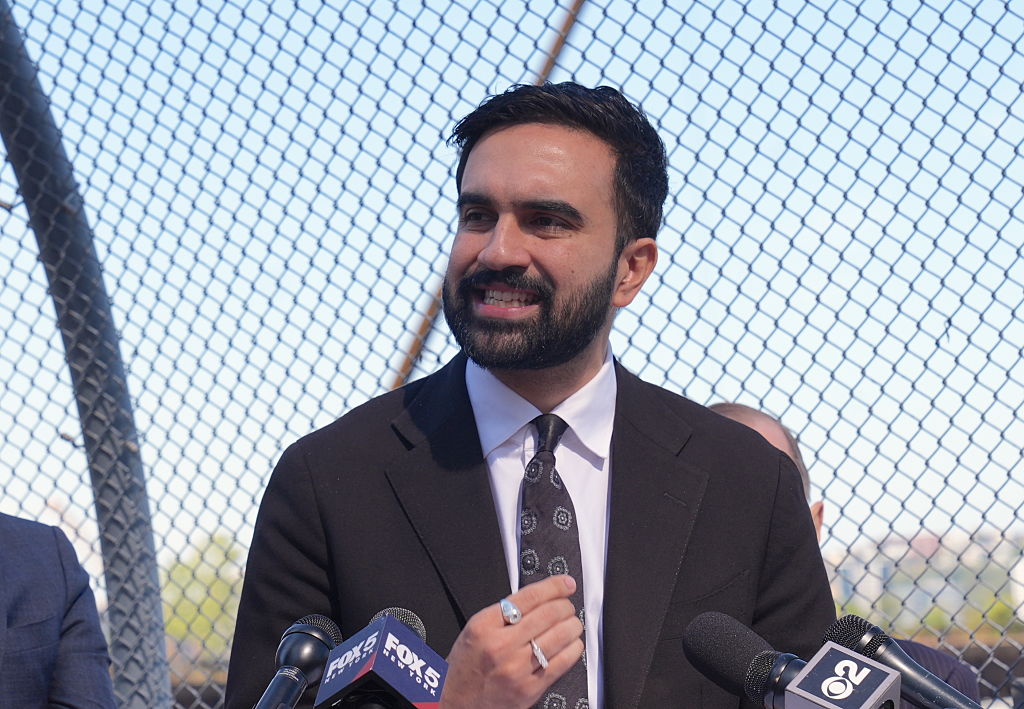In 1906, the famous polymath Sir Francis Galton visited a country fair on the edge of Plymouth, England. A bullock had been tethered for slaughter and almost 800 locals were invited to guess its dressed weight: how heavy it would be after butchering. Galton – an obsessive measurer of people, weather and intelligence – gathered the entries, calculated the average and found something remarkable.
The crowd’s collective estimate came within a single pound of the ox’s actual weight. This elegant experiment would become one of the founding truisms of modern democratic thought. Galton had shown that while individuals may err, the group, in aggregate, can reason with uncanny accuracy and prescience. He had discovered “the wisdom of crowds.” Within the following two decades, much of the western world had granted the vote to all adults. Universal suffrage was born.
That quaint rural fair was more than a century ago. And the state of the crowd has changed. Today, the masses aren’t guessing the weight of livestock: they’re hunched over smartphones, rage-posting about vaccines, chasing TikTok dopamine hits and struggling to add fractions or understand graphs. They are, it is thought by many, getting more stupid. And this is a major, perhaps terminal, problem for democracy.
We are passively scrolling instead of actively pondering, reacting instead of reasoning. We are slowing
Such a profound claim requires evidence. Here it is. Firstly, the data on cognitive decline is unambiguous. IQ scores across the developed world have been falling for decades, as shown by studies in Denmark, Norway, the UK, France, Australia and, yes, the US. According to a 2023 study in the journal Intelligence, American IQs declined significantly between 2006 and 2018. The losses were most acute in people under 20 – agrim omen.
This phenomenon of dwindling IQ is so definitive it even has a name: the “reverse Flynn effect,” after New Zealand psychometrician James Flynn. It was Flynn who first detected that IQs had been rising throughout the 20th century, and who later observed the trend had gone negative.
Of course, if this was merely an issue with IQ we might dismiss it as something statistical. Maybe IQ tests are too crude: a “mismeasure of man.” Unfortunately, the problem goes deeper. John Burn-Murdoch, data editor at the Financial Times, recently compiled international test scores in reading, math and science. He noted that they peaked around 2012 – and have since been falling. And the fall is possibly accelerating.
In high-income countries, a quarter of adults can no longer use basic mathematical reasoning, e.g. they are unable to verify a statement such as “If a jacket originally costs $200 and is now on sale for 25 percent off, the new price is $150.” In the US, the section of society which is mathematically incapable is around 35 percent.
Meanwhile, attention spans have collapsed. Since the 1980s, the “Monitoring the Future” study, conducted by the University of Michigan, has tracked 18-year-olds’ self-reported ability to think, concentrate or learn. The responses were stable for decades, until 2014 – when the numbers reporting “cognitive difficulty” began to soar.
At the same time, less than 50 percent of Americans say they read books. In the UK, 35 percent of adults are “lapsed readers” – who used to read but have stopped. As of 2023, 36 percent of Spaniards reported that they “never or almost never” read books. In other words, across the West we are passively scrolling instead of actively pondering, reacting instead of reasoning. We are slowing.
The implication for our political life is stark. If democracy depends on the Galtonic idea that the electorate is, on average, capable of advanced rational thought, what happens if that assumption no longer holds? What happens when “Ask the Audience” is a foolish move?
In theory, we should be OK – because democracy is supposedly self-correcting. If the voters falter, the political class compensates. And yet over the past 20 years we’ve seen the intellectual degradation of both electorate and elected. Not only are the voters thinking less clearly – their leaders are, too. We once expected statesmen to be cerebral. Lincoln read Euclid. Churchill wrote Nobel Prize-winning history books. Even Reagan, often mocked, was a voracious reader and Cold War strategist.
Today? The political arena – flinching under the unforgiving yet trivializing gaze of social media – feels like a game show in which substance is penalized and nuance is mocked. We are led by people who are often pretty vacant, and when they are not, they pretend to be – lest they look elitist or smug on Facebook and Instagram.
Why is intelligence declining? There is no single explanation – though many have been posited. Migration between countries with varying average IQs might be an issue, but that doesn’t explain why this seems to affect all corners of society. Maybe smart people aren’t having enough babies – so-called “dysgenic drift.” But then if they are that smart, why aren’t they having babies? Some scientists look to nutrition, industrial toxins, lead exposure or maybe a change in educational styles. Yet again, this doesn’t cover all bases.
For many, there is one obvious culprit. Look at the year the decline began in the Michigan cognition data: 2014. That is the year Instagram exploded. The same goes for many of these declines: they coincide with the advent of the iPhone and its ilk. It is hard not to conclude that the invention of social media, along with the advent of the smartphone itself, has simultaneously done something bad to attention spans, while eroding the need to attain and retain knowledge.
Look at it this way: these days few people bother with mental arithmetic, because they always have pocket calculators on their phones. Now this process is widening. AI will soon give us phones that can instantly answer any question on Earth, so why waste your time learning answers that your machine can give you better and quicker?
It’s a sad evolution, and possibly inevitable. In which case, maybe we can find solace in the brilliance of those same handheld machines. As people get inexorably stupider, we could give up on democracy altogether, and let the robots do it for us. I bet ChatGPT would be really good at guessing the weight of a Devonian bullock.
This article was originally published in The Spectator’s June 2025 World edition.


























Leave a Reply